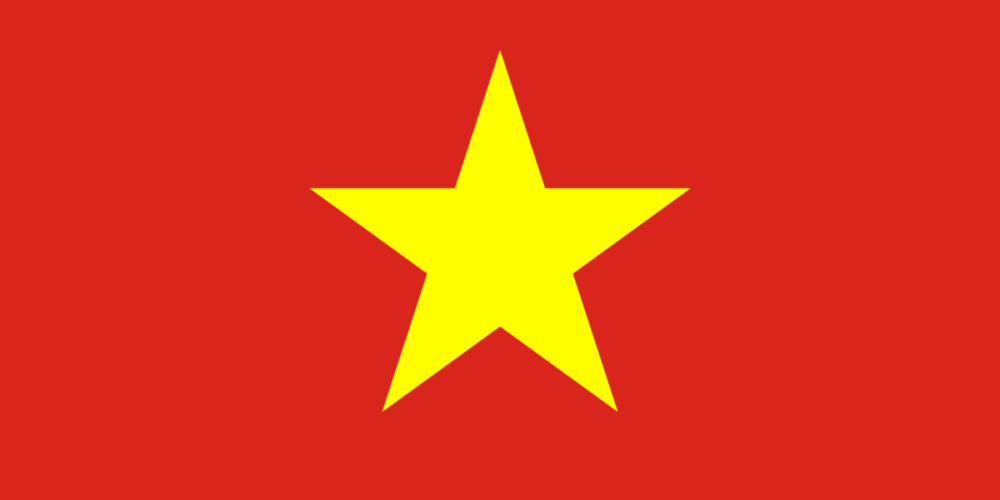On 25 January, 2021, the 13th National Congress of the Communist Party of Vietnam will open in Hanoi. The Congress takes place in the context of Vietnam’s successes against Covid-19 where Vietnam has seen less than 1.5 thousand cases and 35 deaths (at the time of writing) in a country of 95 million. This is not simply due to Vietnam’s health policies but also due to how health is secondary to profit. A UNDP report notes that 89% of Vietnamese supported the state’s priority of public health over the economy. Globally, only 67% said the same.
The Vietnamese liberation struggle was one of the defining points of the 20th Century. Vietnamese Communists managed to defeat Japanese occupation in World War 2, leading to the August Revolution where Ho Chi Minh, a founder member of the French Communist Party and the first leader of the Vietnamese Communists and people, declared Vietnam’s independence from Japanese and French colonialism.
With the help of the British, France re-gained its colonies in Indochina, leading to the Vietnamese continuing their independence war. In 1954, French imperialism suffered a humiliating defeat in the battle at Dien Bien Phu at the hands of Vietminh forces led by General Vo Nguyen Giap. Not long after, Vietnam was partitioned, with the Democratic Republic of Vietnam in the north led by Ho Chi Minh and the South ruled by pro-Western tyrants.
The rest, as they say, is history. The Vietnamese National Liberation Front along with the North Vietnamese People’s Army fought against the United States in one of the most heroic showdowns against imperialism. By 1975, US imperialism and its allies had dramatically fled the country, scrambling onto Huey helicopters as the Communists liberated Saigon – now named Ho Chi Minh City.
The Vietnamese revolutionaries had suffered hundreds of thousands dead, killed in fighting or in massacres, industry devastated due to US bombing and Agent Orange biological warfare. What allowed them to win was the Communist leadership which had given direction to the disparate independence forces and managed to get the backing of the people for a revolutionary struggle. Ho had seen, much like Ireland’s James Connolly, that a socialist had to be a patriot, that only socialism could lead to true independence.
After unification, Vietnam had to endure Western sanctions, as well as attacks from the Pol Pot regime in Cambodia – backed by the West and China – which was carrying out genocide that was only stopped when the Vietnamese militarily intervened, inciting an invasion from China in 1979. Vietnam’s “war-communism” had meant that while Vietnam had built a basically egalitarian society, it did so without any industrial base and a low standard of living, prompting the Doi Moi reforms in 1986, which allowed for a small scale of private trading.
The counter-revolution in the USSR meant that Vietnam was forced to escalate its reforms by the turn of the century. Vietnam calls its economy a “socialist-oriented market economy”. Much like how the Scandinavian countries allow a strong welfare state in order to strengthen their capitalism, Vietnam – along with China and Laos – allows a strong private, capitalist sector to strengthen its socialism.
Bill Hayton in his book Vietnam: Rising Dragon states that
Some might snicker at the official description of a ‘socialist-oriented market economy’ but it’s not an empty slogan. Even today, the Communist Party retains control over most of the economy: either directly through state-owned enterprises which monopolise key strategic sectors, through joint ventures between the state sector and foreign investors, or increasingly, through the elite networks which bind the Party to the new private sector
What is interesting is that Vietnam’s reforms have actually strengthened the state or public sector’s control of the economy. As Hayton writes
In every other communist country that has embarked on economic transition, the proportion of the economy controlled by the state has fallen. In Vietnam it actually rose: from 39 per cent in 1992 to 41 percent in 2003 – and these figures exclude foreign-invested firms, which were usually joint ventures with SOEs.
Along with the state sector is a massive co-operative movement, which has over 8 million members in 2020.
In effect, the capitalist sector which does exist in Vietnam is kept under control by the Communist Party and the state. Capitalism in embryo has existed in every socialist country that has existed and arose from capitalism. Even in the Soviet Union in its later years, capitalism existed de facto in a second economy.
In recent years, the current leader, Nguyen Phu Trong, has launched a major anti-corruption drive which has aimed at breaking up the networks in the party and state which have developed links with the growing capitalist class. The new-found wealth has allowed negative tendencies such as nepotism, corruption, individualism and general capitalist morals to infect the CPV and combating this has been the main program of the anti-corruption drive, leading to the downfall of the pro-liberalisation prime minister Tan Dung in particular.
The CPV maintains its legitimacy through the use of measures such as the “Grassroots Democracy Decree” where peasants decide on a local budget, the mass organisations such as the People’s Committees and Women’s Union as well as the to dan pho or neighbourhood watch system, trade unions and others all contained in the Vietnamese Fatherland Front.






